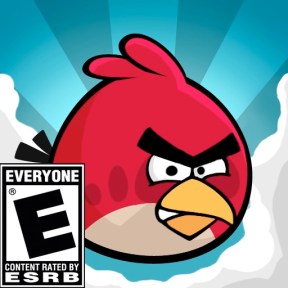
The CTIA and ESRB pulled back the curtains on their new mobile app rating system today, and it looks like with the help of their six founding partners, app ratings could soon grace a smartphone near you.The new app rating system will be implemented first by AT&T, Microsoft, Sprint, T-Mobile USA, U.S. Cellular, and Verizon Wireless, and other storefronts are said to have expressed interest.If that list appears to be missing a bit of star power, you’re right: Apple and Google aren’t participating in the program as they both already provide age and maturity level suggestions for each app listed in their app stores. Though the reasoning seems pragmatic, I’m sure neither company wanted to cede control over part of the app submission process to a third party.I expressed some concern about the logistics of getting an app rated when the news first broke, and thankfully the CTIA and ESRB have worked out a fairly painless process for developers. When an app is completed and is being prepared for submission to a given app store, developers will fill out a quick online survey that will be reviewed on the spot by someone from the ESRB.Once the review is completed and the app earns a rating (think classic ESRB: E for Everyone, T for Teen, etc.), developers will be given a unique identifier code that allows them to submit that same app to other participating app stores without having to go through the review process again.CTIA President Steve Largent made it clear that the app rating system would only apply to new app submissions — apps that are already available in their respective app stores won’t be rated unless developers choose to submit them for ratings. Developers can also appeal a rating for an app if they find it to be inaccurate with regard to their app’s content.When the CTIA and the ESRB teased us with a heads-up press release last week, I took a quick look at the current state of in-store app ratings. Apple is doing just fine on their own: they have fairly descriptive ratings for their applications, and they already encompass some of the content descriptors that ESRB ratings are known for.Google on the other hand doesn’t go into as much detail with their content ratings, which are usually hidden below the fold when viewed on Android devices anyway. The Android Market could stand to benefit from some more robust app descriptions, especially given that Android remains the most widely used smartphone OS in the country and that the Market is no stranger to funny business.This of course begs a fairly weighty question: is there a point to an app ratings system that Apple and Google won’t use? More than a billion apps have been downloaded from the Android Market in the United States alone, and Apple has surely crossed a similar milestone. Will developers see the need to undergo an extra step in the submission process when the app stores that people flock to don’t require it? The jury’s still out on that one — for now we’ll just have to sit back and wait for those first apps to get their ESRB badges.
Source:http://techcrunch.com/2011/11/29/ctia-and-esrb-debuts-app-rating-system-no-buy-in-from-google-or-apple/
Source:http://techcrunch.com/2011/11/29/ctia-and-esrb-debuts-app-rating-system-no-buy-in-from-google-or-apple/

No comments:
Post a Comment